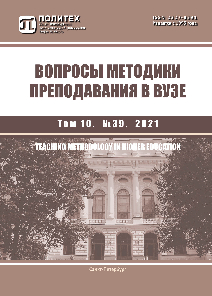Principles of language for special purposes (LSP) teaching within the framework of cognitive and communicative approach
The article is devoted to selection and classification of LSP instruction principles within the cognitive and communicative approach, which allows teachers to solve common instructional problems taking into consideration cognitive processes such as perception, thinking, cognition, explanation, comprehension and to use foreign language L2 as a means of learning with a predominant cognitive function of language. The principles of LSP instruction have been proved and described from the point of view of students’ professional orientation, which implies utmost correlation between the content of the LSP tailor-made course and the students’ core subjects and helps to form a professional conceptual sphere of future specialists; content-based instruction and the use of authentic materials, which generate students’ long-range intrinsic motivation and cognitive flexibility, facilitate creative tasks solving and grasping the subjects and result in productive learning. The learning process proper is organized as an integrated tailor-made LSP course with students’ needs analysis in view. An LSP teacher has to strengthen his/her role of a course designer and materials provider, a facilitator, a contributor in discussions possessing basic knowledge of a core subject. The distinguished blocks of principles make it possible to design a tailor made course for students majoring in any specialty for any foreign languages.



